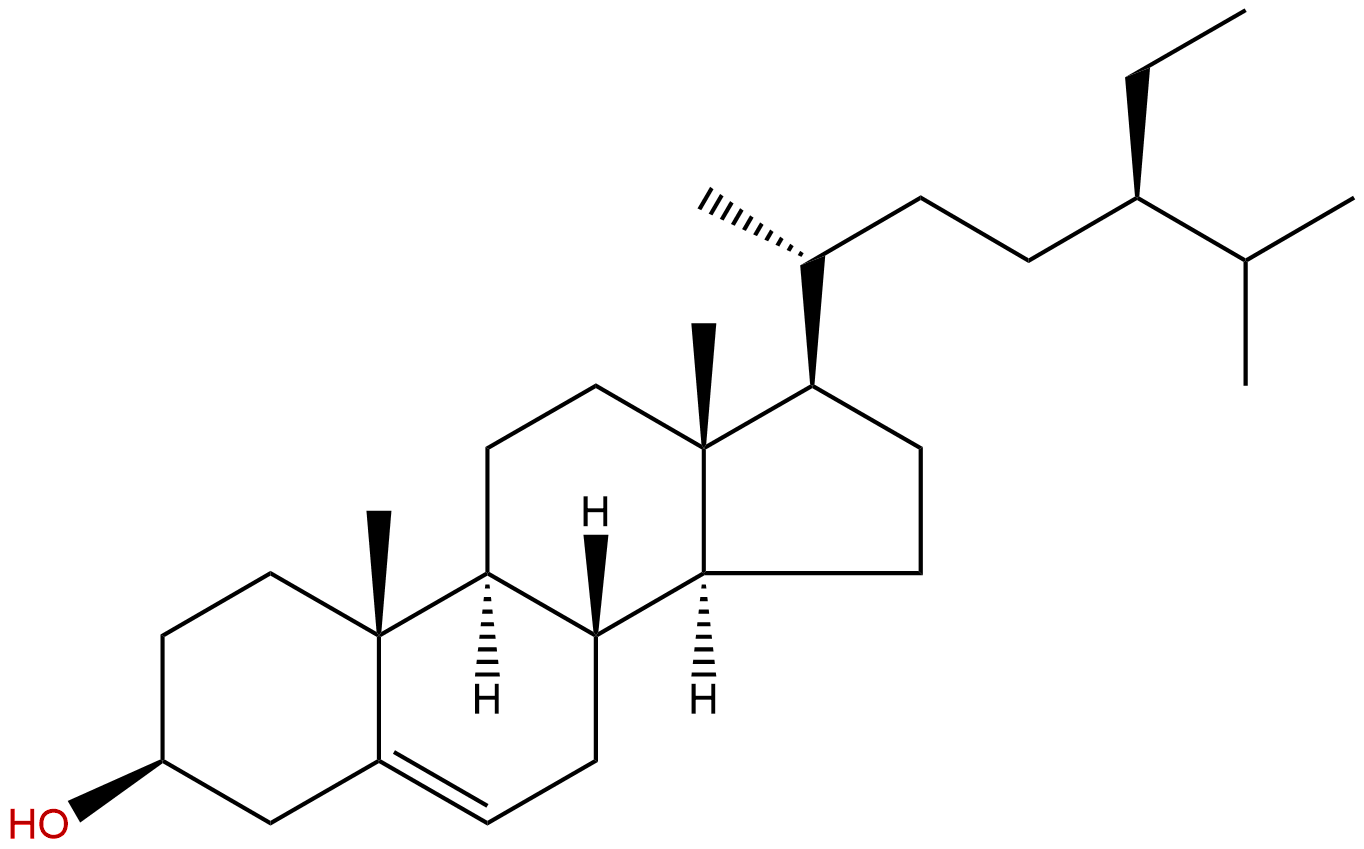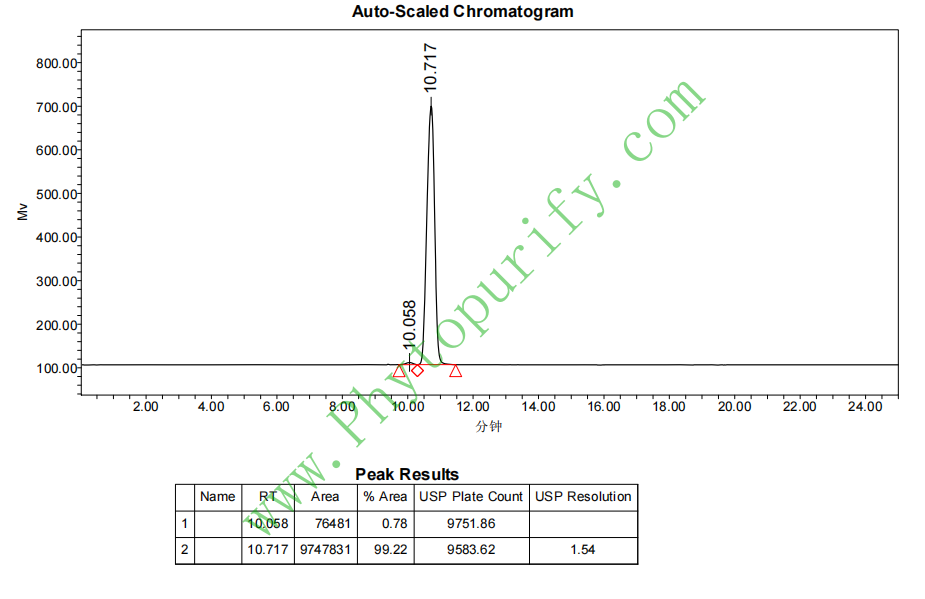
Beta-SitosterolCAS No.:83-46-5
|
||||||||||
 |
|
|
||||||||

| Catalogue No.: | BP0237 |
| Formula: | C29H50O |
| Mol Weight: | 414.718 |
Product name: Beta-Sitosterol
Synonym name:
Catalogue No.: BP0237
Cas No.: 83-46-5
Formula: C29H50O
Mol Weight: 414.718
Botanical Source: Widely distributed in plants; the commonest sterol of higher plants. Also occurs in marine organisms, incl. the scallop Placopecten magellanicus, the sponge Reniera sp. and the alga Cladophora densa
Physical Description: Cryst.
Type of Compound: Steroids
Purity: 95%~99%
Analysis Method: HPLC-DAD or/and HPLC-ELSD
Identification Method: Mass, NMR
Packing: Brown vial or HDPE plastic bottle
Storage: Store in a well closed container, protected from air and light. Put into refrigerate or freeze for long term storage.
Whenever possible, you should prepare and use solutions on the same day. However, if you need to make up stock solutions in advance, we recommend that you store the solution as aliquots in tightly sealed vials at -20℃. Generally, these will be useable for up to two weeks.
The product could be supplied from milligrams to grams, up to kilograms
Inquire for bulk scale.
Descriptions:
Beta-Sitosterol a main dietary phytosterol found in plants, may have the potential for prevention and therapy for human cancer, β-sitosterol induces apoptosis in HT116 cells is associated with a decreased expression of the anti-apototic Bcl-2 protein and mRNA and a concomitant increase of the pro-apototic Bax protein and mRNA, and with release of cytochrome c from the mitochondria into the cytosol. [1]
Beta-Sitosterol (LD50>3 g/kg i.p. in mice, minimum ulcerogenic dose was 600 mg/kg i.p. in rats)has potent anti-inflammatory activity , similar to hydrocortisone and oxyphenbutazone when administered intraperitoneally; possesses antipyretic activity, similar to acetylsalicylic acid.[2]
Beta-Sitosterol shows a potent angiogenic activity in the chorioallantoic membrane (CAM) assay, it stimulates neovascularization in the mouse Matrigel plug assay and the motility of human umbilical vein endothelial cells in an in vitro wound migration assay in the presence of heparin, thus β-sitosterol is a novel plant-derived angiogenic factor which may have potential pharmaceutical applications for the management of chronic wounds.[3]
Beta-Sitosterol can inhibit proliferation and induce apoptosis in human solid tumors such as colon and breast cancers, it potently induces apoptosis in U937 cells and induces apoptosis is related to the selective activation of caspase-3 and induction of Bax/Bcl-2 ratio.[4]
References:
[1] Choi Y H, Kong K R, Kim Y A, et al. Int J Oncol, 2003, 23(6):1657-62.
[2] Gupta MB, Nath R, et al. Srivastava Planta Medica, 1980, 39(2):157-63
[3] Moon E J, You M L, Lee O H, et al. Angiogenesis, 1999, 3(2):117-123.
[4] Park C, Moon D O, Rhu C H, et al. Biol Pharm Bull, 2007, 30(7):1317-23.
[5] Nair V D, Kanfer I, Hoogmartens J. J Pharmaceut Biomed , 2006, 41(3):731-7.
HPLC of Beta-Sitosterol

HNMR of β-Sitosterol
